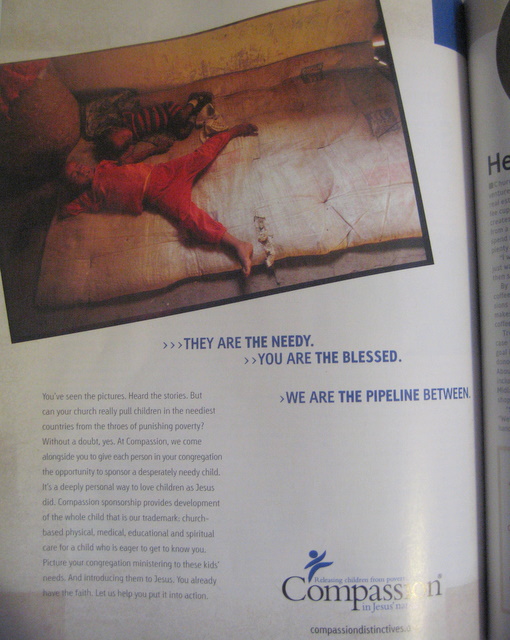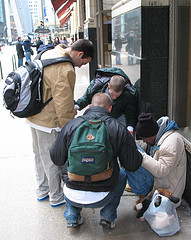I’ve posted this same brief post for the past few years around this time, in hopes of drumming up a bit of discussion regarding this national holiday. About five years ago I was reading the paper in a small town in Minnesota. I read an article by Congressman Mark Kennedy entitled: “The Great Experiment” which discussed the sacrifices many soldiers had made to make this country what it is today. I did not disagree with his article, I simply felt that he’d left some other important people and groups out. I felt the need to reply in this letter to the editor that you see below. I’ve left it unedited, but I’ll include further thoughts at the end. Surprisingly, the local paper published my letter the following week:
around this time, in hopes of drumming up a bit of discussion regarding this national holiday. About five years ago I was reading the paper in a small town in Minnesota. I read an article by Congressman Mark Kennedy entitled: “The Great Experiment” which discussed the sacrifices many soldiers had made to make this country what it is today. I did not disagree with his article, I simply felt that he’d left some other important people and groups out. I felt the need to reply in this letter to the editor that you see below. I’ve left it unedited, but I’ll include further thoughts at the end. Surprisingly, the local paper published my letter the following week:
The Failing Experiment
I want to first of all thank Congressman Mark Kennedy for his article concerning this country’s “Independence Day.” There is certainly room for celebration and many of the historical facts he pointed out are worth noting and esteeming. Unfortunately I fear Congressman Kennedy missed out on the whole picture of the American Experiment and I feel the need to complete, or at least add to his summary.
It is true our Experiment has succeeded because of sacrifice, but whose sacrifice? Let us not forget the genocide of the Native Americans – from whom we took and still keep this land. They sacrificed many lives to our “Manifest Destiny.” Even today the effects of this sacrifice are felt and if you dare look, they are still seen. Our brothers and sisters of the human race live on small, infertile plots of land that we’ve forced them to, and the effects of injustice for hundreds of years can be seen clearly today. The Native Americans sacrificed.
Let us remember that the fourth of July is Independence for only part of the citizens of this country. It wasn’t until December 1865 that the denial of freedom (slavery) was abolished by law in this country. And we shouldn’t fool ourselves into thinking that this is a reality today. It takes only a brief look at the statistics to see that even since the Civil Rights movement of the sixties, we are still discriminating against people because of their skin (look up red-lining, the education system, and the demographic layout of most cities). It was on the backs of our brothers and sisters of the human race from Africa that this country began to thrive. It was their sacrifice for which they currently still have never reaped full benefits.
They sacrificed as soldiers too, Africans, Mexicans, Japanese, Native Americans – only to return to a “free” nation where they were discriminated against and treated as less than human. Remember the sacrifice of the American citizens of Japanese decent forced into Internment camps in the Desert. Remember the replacement of slaves with sharecropping and cheap labor from Mexico which we discriminate against yet desperately “need” in order to keep our way of living “affordable” for us.
There are many more groups that have been sacrificed to this American Experiment, but only one more I will note in this summary. They are half the population and for years have fed, clothed, cleaned, and cared for generations of American men. Women, they celebrate their independence on August 26, 1920 when the law at least extended to them the vote. They, like these many other groups, are still fighting for the freedom we will celebrate July 4th.
Celebrate your freedom on Sunday, but open your eyes to reality. Freedom even in America is only for the privileged, unless we choose to make it for everybody. Freedom will never come at the barrel of a gun. It will take sacrifice, sacrifice from you and me, not our lives, but our love. Will you sacrifice with love for that freedom you so enjoy to be extended to all people?
I hope, at the very least, that this at least reminds us to reflect somberly on this holiday. I don’t mean to belittle the decisions of so many soldiers who have risked their lives, but I also recognize that is not a complete picture of our history. Also, to those who are bothered by my dissent, let me also remind you that the fourth of July is a celebration of an act of treason, and in some sense (from a historically British perspective) a completely unpatriotic event. I’m not saying my critique is on par with the Declaration of Independence or anything, just that a nation founded on this type of act should keep an open ear to those who speak critically of it.
(For an interesting discussion, check out last years comment thread)

 In most cities in the USA, especially in our current economic climate, there are more abandoned housing units then there are homeless. In other words: there is enough housing for everyone. Of course, the red tape and economic structures of our society prevents this solution from becoming a reality. However, I’d like to offer an alternative solution.
In most cities in the USA, especially in our current economic climate, there are more abandoned housing units then there are homeless. In other words: there is enough housing for everyone. Of course, the red tape and economic structures of our society prevents this solution from becoming a reality. However, I’d like to offer an alternative solution.

 (This is the first in a series of posts I’m considering for publication. Please take a minute to read the post and if your willing, leave a comment or use the stars at the bottom right of the article to give it a rating, your input will be extremely helpful. Thank You)
(This is the first in a series of posts I’m considering for publication. Please take a minute to read the post and if your willing, leave a comment or use the stars at the bottom right of the article to give it a rating, your input will be extremely helpful. Thank You)
